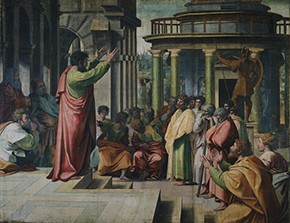Ironic witness: Embodying faith in a postmodern age

John is a self-described atheist Roman Catholic. He earned a Ph.D. in philosophy at an Ivy League university and is a philosophy professor at a small college. We met several years ago at a research center, and I noticed a deep spiritual hunger in him. John was fascinated by my faith and confided in me that although he felt he no longer had faith, he nevertheless experienced this as a profound loss. John confessed that he desperately wished he could believe in God again and had even spent time in two different monasteries hoping to reignite his faith or find some deeper spiritual reality in which he could believe.
During our second week at the center, John and I were joined by two graduate students from a nearby seminary who had come to do research for their master’s theses. Our new friends informed John and me that they had just completed a modular course on Christian apologetics with one of the leading contemporary apologists. Jokingly, they related how the apologist described himself as “the hired gun” who rode into town to shoot down the bad guys (atheists) and their arguments and make the streets safe again for Christians.
It did not take our budding apologists long to clue in to the fact that John was not a professing Christian. And despite John’s protestations that he was not interested in arguing about faith, what he did or did not believe or how far his beliefs were or were not justified, our two apologists went to work. They took aim and started to shoot holes in the reasonableness of John’s beliefs with their shiny new apologetic six-guns.





